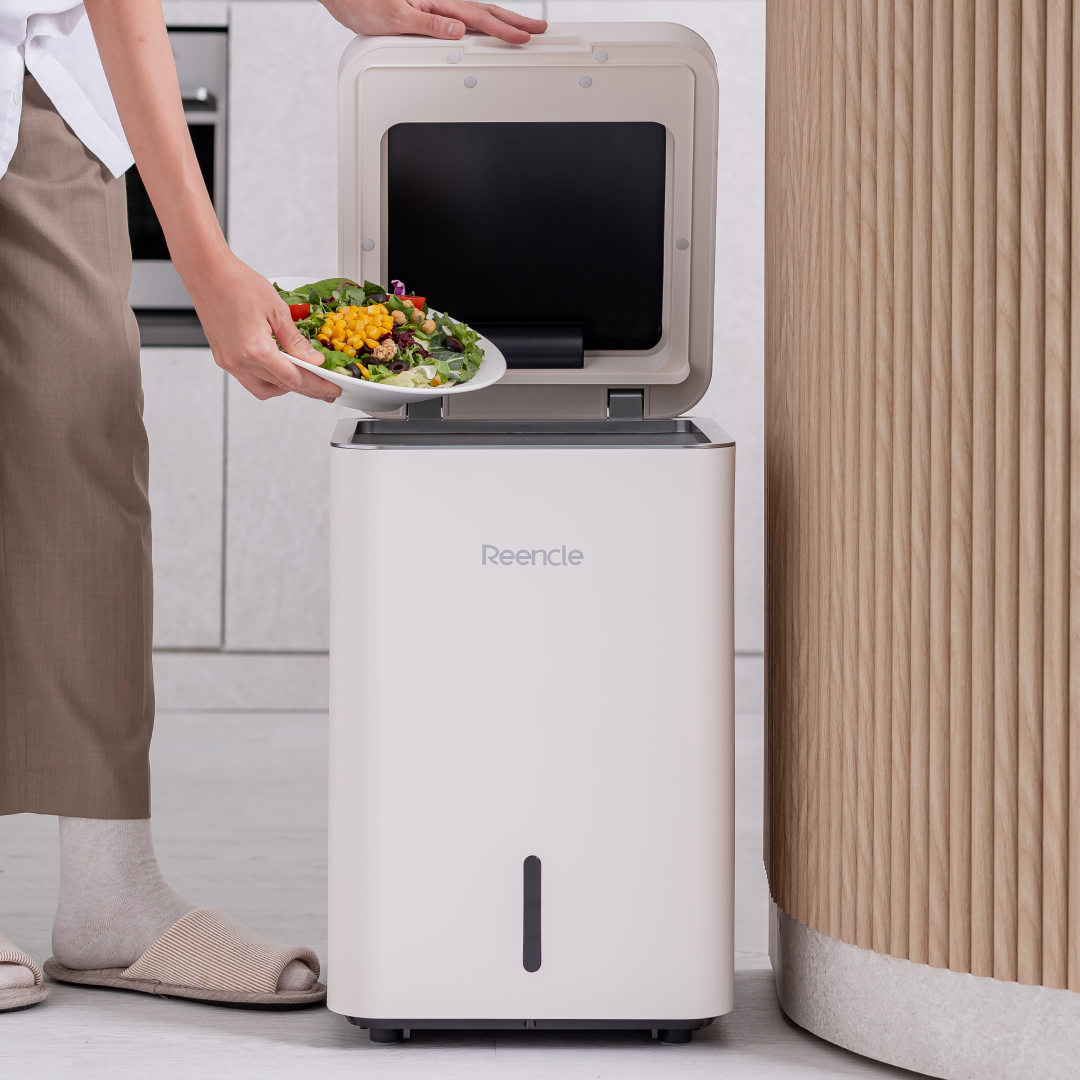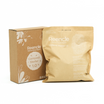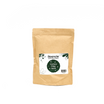Issues with Vermicomposting
in Apartments

Composting has become a popular way to reduce waste and create nutrient-rich soil for plants. One method of composting that has gained traction, especially among urban dwellers, is vermicomposting. This is the process of using worms to break down organic waste. While it offers many benefits, like any other method, it also has its drawbacks, particularly when implemented in apartment settings.
In this article, we'll delve into the disadvantages of composting with worms in apartments, examining the cons of composting in these environments and exploring the negative aspects that you might encounter.

Why does our partnership matters
For every purchase, we plant 1 TREE to nurture our planet 🌲Together, we are sowing the seeds of change and cultivating a greener, more sustainable world.
Anything else?
Anything else?You willl also receive an official certificate from Greenspark as a token of appreciation for your commitment to the environment! 📜
How do we see the progress?
How do we see the progress?Join us on this remarkable journey towards an impact dashboard.You can see how your eco-smart choice made the world a better place
 View more
View more
Your support empowers reforestation, fights climate change,
and paves the way for a brighter, eco-friendly future.
Join us on this remarkable journey towards a cleaner,healthier planet.
Shop with a purpose, shop with Reencle! 🛒💚

Why does our partnership matters
For every purchase, we plant 1 TREE to nurture our planet 🌲Together, we are sowing the seeds of change and cultivating a greener, more sustainable world.
Anything else?
Anything else?You willl also receive an official certificate from Greenspark as a token of appreciation for your commitment to the environment! 📜
How do we see the progress?
How do we see the progress?Join us on this remarkable journey towards an impact dashboard.You can see how your eco-smart choice made the world a better place
 View more
View more
Your support empowers reforestation, fights climate change,
and paves the way for a brighter, eco-friendly future.
Join us on this remarkable journey towards a cleaner,healthier planet.
Shop with a purpose, shop with Reencle! 🛒💚
1. Understanding Vermicomposting
Before we discuss the cons of vericomposting in apartments, let's briefly define what it is. Vermicomposting is a bio-oxidative process that involves the breakdown of organic matter by the joint action of worms and microorganisms.
It's an eco-friendly way to manage kitchen waste, turning it into vermicompost, which can be used as a potent fertilizer for houseplants or gardens.
1. Understanding Vermicomposting
Before we discuss the cons of vericomposting in apartments, let's briefly define what it is. Vermicomposting is a bio-oxidative process that involves the breakdown of organic matter by the joint action of worms and microorganisms. It's an eco-friendly way to manage kitchen waste, turning it into vermicompost, which can be used as a potent fertilizer for houseplants or gardens.
2. Common Challenges of Apartment Vermicomposting
Limited Area for Setup
One of the first issues faced by apartment residents when it comes to vermicomposting is the limited space. Apartments don't always offer the luxury of a backyard or balcony where a compost bin can be placed. Finding a suitable spot that is out of the way yet easily accessible can be a challenge.
Expansion Limitations
As your composting needs grow, you may find that you're unable to expand your vermicomposting setup due to space limitations. This can restrict the amount of waste you can process and limit the benefits you reap from the practice.
Potential for Bad Smells
A common misconception about vermicomposting is that it's odor-free. While it's true that a well-maintained worm bin should not emit any foul odors, this can be difficult to achieve in an apartment setting. Factors such as overfeeding, improper worm-to-waste ratio, or lack of aeration can lead to a smelly bin, which is particularly unpleasant in a confined space.
Neighbor Complaints
In an apartment complex, you're in close proximity to your neighbors. If your vermicomposting bin starts to smell, it can lead to complaints and even conflicts with those living around you.
Excess Liquid
Vermicomposting produces leachate, a liquid byproduct that can accumulate and cause issues if not properly managed. In an apartment, dealing with excess moisture is especially tricky, as it can lead to water damage or attract pests.
Attracting Unwanted Guests
A poorly maintained worm bin can attract pests like fruit flies, ants, and even rodents. In an apartment, where pests can quickly become a problem not just for you but for your neighbors, this is a significant concern.
Containing Infestations
If pests do infiltrate your vermicomposting system, containing and eliminating the infestation can be much more difficult within the confines of an apartment. It often requires additional effort, resources, and potentially professional pest control services.
3. Reencle: The Superior Alternative for Indoor Composting
Indoor composting with Reencle offers numerous advantages over traditional vermicomposting, especially in apartment settings. Reencle is an automated device that efficiently breaks down food waste, producing high-quality compost without the need for worms.
Unlike vermicomposting, which can be challenging due to space constraints, odor management, and the potential for pest infestations, Reencle provides a hassle-free solution. It operates quietly, requires minimal maintenance, and eliminates the risk of unpleasant smells, making it an ideal choice for those living in confined spaces.
By choosing Reencle, apartment dwellers can enjoy the benefits of composting without the common drawbacks associated with vermicomposting.
4. Conclusion
While vermicomposting is a commendable and environmentally friendly practice, the challenges of maintaining a worm bin in an apartment setting cannot be ignored. From dealing with limited space and potential odors to managing pests and ensuring the health and safety of your home, there are many factors to consider before embarking on an indoor vermicomposting journey.
For those willing to tackle these challenges, the rewards of reducing waste and creating a natural fertilizer can be fulfilling. However, it's essential to enter into vermicomposting with eyes wide open to the possible disadvantages and to plan accordingly.
Whether you choose to pursue vermicomposting or not, being aware of the negative aspects can help you make a more informed decision and potentially lead to a more successful composting experience.
2. Common Challenges
of Apartment Vermicomposting
Limited Area for Setup
One of the first issues faced by apartment residents when it comes to vermicomposting is the limited space. Apartments don't always offer the luxury of a backyard or balcony where a compost bin can be placed. Finding a suitable spot that is out of the way yet easily accessible can be a challenge.
Expansion Limitations
As your composting needs grow, you may find that you're unable to expand your vermicomposting setup due to space limitations. This can restrict the amount of waste you can process and limit the benefits you reap from the practice.
Potential for Bad Smells
A common misconception about vermicomposting is that it's odor-free. While it's true that a well-maintained worm bin should not emit any foul odors, this can be difficult to achieve in an apartment setting. Factors such as overfeeding, improper worm-to-waste ratio, or lack of aeration can lead to a smelly bin, which is particularly unpleasant in a confined space.
Neighbor Complaints
In an apartment complex, you're in close proximity to your neighbors. If your vermicomposting bin starts to smell, it can lead to complaints and even conflicts with those living around you.
Excess Liquid
Vermicomposting produces leachate, a liquid byproduct that can accumulate and cause issues if not properly managed. In an apartment, dealing with excess moisture is especially tricky, as it can lead to water damage or attract pests.
Drainage Solutions
Finding the right balance of moisture in your worm bin is crucial. Without proper drainage, the bin can become too wet, creating an anaerobic environment that is harmful to worms and may cause odors.
Attracting Unwanted Guests
A poorly maintained worm bin can attract pests like fruit flies, ants, and even rodents. In an apartment, where pests can quickly become a problem not just for you but for your neighbors, this is a significant concern.
Containing Infestations
If pests do infiltrate your vermicomposting system, containing and eliminating the infestation can be much more difficult within the confines of an apartment. It often requires additional effort, resources, and potentially professional pest control services.
3. Reencle: The Superior Alternative for Indoor Composting
Indoor composting with Reencle offers numerous advantages over traditional vermicomposting, especially in apartment settings. Reencle is an automated device that efficiently breaks down food waste, producing high-quality compost without the need for worms.
Unlike vermicomposting, which can be challenging due to space constraints, odor management, and the potential for pest infestations, Reencle provides a hassle-free solution. It operates quietly, requires minimal maintenance, and eliminates the risk of unpleasant smells, making it an ideal choice for those living in confined spaces.
By choosing Reencle, apartment dwellers can enjoy the benefits of composting without the common drawbacks associated with vermicomposting.
4. Conclusion
While vermicomposting is a commendable and environmentally friendly practice, the challenges of maintaining a worm bin in an apartment setting cannot be ignored. From dealing with limited space and potential odors to managing pests and ensuring the health and safety of your home, there are many factors to consider before embarking on an indoor vermicomposting journey.
For those willing to tackle these challenges, the rewards of reducing waste and creating a natural fertilizer can be fulfilling. However, it's essential to enter into vermicomposting with eyes wide open to the possible disadvantages and to plan accordingly.
Whether you choose to pursue vermicomposting or not, being aware of the negative aspects can help you make a more informed decision and potentially lead to a more successful composting experience.











